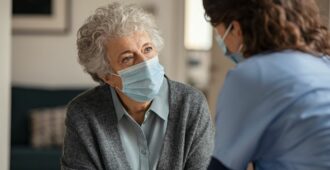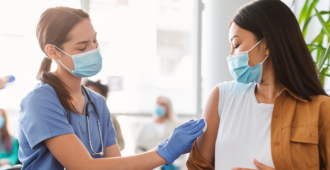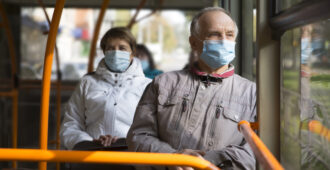
Face masks – and whether the general public should wear them to stop the spread of COVID-19 – are a subject of much uncertainty and shifting advice. Just this month, the World Health Organisation reversed its previous position of not recommending their use. In the U.S., masks are recommended for asymptomatic people in public places where social distancing is hard to maintain, such as on public transport. But in Australia and New Zealand, they are not.
What is the published evidence for or against the wearing of face masks in this time of pandemic? The Sax Institute has just published an Evidence Snapshot on this very subject. Our researchers identified 13 studies exploring whether mask-wearing in the community is likely to reduce COVID-19 transmission. Although the evidence overall was judged to be limited and of low certainty, 10 of the 13 studies indicated that wearing masks in the community was likely to reduce the spread of the disease. This finding applies to both early and later stages of the pandemic.
Two modelling studies found a significant impact when masks were adopted early and worn by at least 80% of the population. Other studies suggested an effect on public transport or other public environments where social distancing is difficult. But the use of masks in recreational and mass gatherings was not found to be effective.
Mask-wearing did not diminish adherence to other measures where the evidence is far more clear-cut, such as hand-washing and social distancing. Public health campaigns could further emphasise the importance of all these protections used together, the researchers suggested.
But where there is any problem with the supply of masks or where universal use is not recommended, high-risk groups should be targeted, researchers say. These include the elderly, the vulnerable, people living in high-risk areas and those who are immunocompromised.
The report was commissioned by the Australian Commission on Safety and Quality in Health Care (ACSQHC).
Download the full report here.
Learn more about the Sax Institute’s Evidence Checks here.





